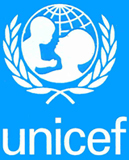
Registering a child’s birth is a critical first step towards safeguarding lifelong protection. Promoting children’s right to birth registration falls clearly within UNICEF’s mandate. It has been a key component of its programming since the late 1990s. Approximately 230 million children under the age of 5 have not had their births registered.1 There has been some progress, albeit small in raising birth registration levels. Between 2000 and 2010 global birth registration levels rose only slightly, from 58 per cent to 65 percent.2 Certain trends in the international environment provide opportunities for rethinking approaches to birth registration.
The impact of the lack of a birth certificate on the individual is becoming ever more evident in the modern world, as identification is required to access an increasingly wide range of services, entitlements and opportunities. For example, in many low- income countries, even in remote rural areas, proof of identify is required for the acquisition of a mobile phone.
The impact of globalization, trade liberalization, economic shocks, war, natural disasters and climate change has led to an acceleration of cross-border population movements worldwide, including mixed migration. The situation of the growing number of persons who have no documented identity or are stateless is serious. Governments are now according much higher priority to addressing this situation. Internationally, greater attention to identity and security issues is reflected through initiatives such as the Euro-African Process of Migration and Development (Rabat process) that seeks to engage governments in Europe and Africa to address illegal migration. INTERPOL is investing significant resources in improving identity documentation, in which birth registration and certification has been identified as the weakest area.
For the first time, governments in the regions in which registration is the lowest are coming together with development partners to improve civil registration systems. Rapid progress has been made in Africa in the last couple of years under the leadership of the Economic Commission for Africa (ECA), the African Union and the African Development Bank (AfDB). Similar processes are unfolding in Asia and the Americas. South-South learning is also taking place. The Inter-American Development Bank (IDB) has been advocating for action to strengthen civil registration in Latin America for some time now and is sharing experiences with Africa and Asia in a global learning process. There is a global call to form an alliance between UN and non-governmental organizations (NGOs) for civil registration. The United Nations organizations, including the World Bank, and NGOs have also been partners in these processes.